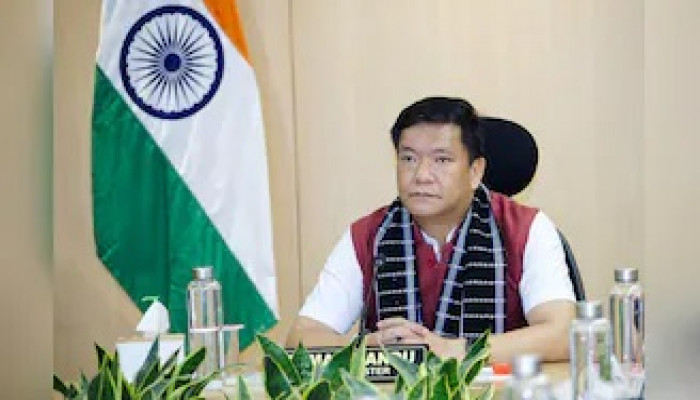Indian Oil partners with Arunachal Pradesh government to provide haemodialysis machines under PMNDP
- In Reports
- 10:28 PM, Nov 27, 2024
- Myind Staff
To improve healthcare accessibility in the North East, the Indian Oil Corporation Limited (IOCL) has partnered with a charitable organisation and the Government of Arunachal Pradesh to provide 10 haemodialysis machines under the Pradhan Mantri National Dialysis Programme (PMNDP). A senior health department official shared this information on Wednesday.
The tripartite agreement was signed in Guwahati by National Health Mission (NHM) Mission Director Marge Sora, representing the Arunachal Pradesh government, alongside representatives from Indian Oil and the Fairfax India Charitable Foundation. This initiative falls under the Corporate Social Responsibility (CSR) framework for Arunachal Pradesh, according to PMNDP state nodal officer Dr. Lobsang Jampa.
Speaking after signing the pact, Indian Oil chief general manager (HRD & ER), Udit Jain said, "This partnership exemplifies the power of public-private collaboration in tackling critical healthcare issues. By decentralising haemodialysis services, we are committed to bringing life-saving care to underserved communities across the region."
Indian Oil- Assam Oil Division executive director and state head Rajesh Nambiar emphasised, “Our goal is to bridge the healthcare gap in the Northeast. This initiative is a testament to Indian Oil's dedication to delivering equitable healthcare services, even in the remotest areas.”
Fairfax India Charitable Foundation Trustee Vishal Suri said, "We are very grateful to Indian Oil for partnering with us at the Fairfax India Charitable Foundation contributing 10 haemodialysis machines, thus enabling much-needed dialysis infrastructure across Arunachal Pradesh. This will help the local communities in Arunachal Pradesh, who had no viable options for this life-saving service until now."
Dr. Lobsang Jampa highlighted that several districts in Arunachal Pradesh lack sufficient haemodialysis facilities, and the existing centres are struggling to meet the growing demand.
Image source: Business Standard







Comments